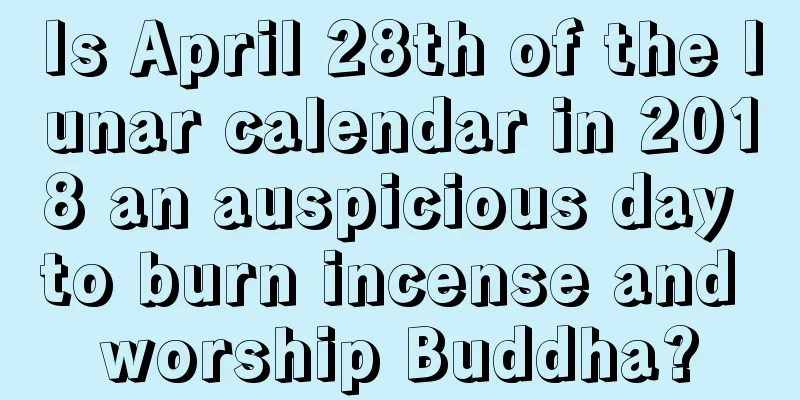When is the 2019 Little New Year's Eve? What are the customs of the 2019 Little New Year's Eve?

Introduction: Xiaonian is an important traditional festival, but the specific time of Xiaonian is not the same. So when is the Xiaonian Eve in 2019? What are the customs of Xiaonian in 2019? The twelfth month of the lunar calendar in 2018 is the end of the year and it is the coldest time of winter. As the proverb says: It is cold to speak so harshly. Follow Mr. Shui Mo's website and we will accompany you through the cold winter.When is the Chinese New Year's Eve in 2019?Monday, January 28, 2019 (the 23rd day of the twelfth lunar month of the Year of the Dog, 6 days away from the 2018 Lunar New Year)The concept and date of Xiaonian vary from place to place. It is the 23rd day of the twelfth lunar month in the north and the 24th day of the twelfth lunar month in the south. In Jiangsu, Zhejiang and Shanghai, both "the 24th day of the twelfth lunar month" and "the night before New Year's Eve" are called Xiaonian. In Nanjing, the Lantern Festival on the 15th day of the first lunar month is called Xiaonian. In parts of Yunnan, it is the 16th day of the first lunar month, and in some ethnic minority areas in the southwest and north it is New Year's Eve. The Little New Year also means that people begin to prepare New Year's goods and get ready to have a good new year in a clean manner. It means that the new year will have a new look and expresses the Chinese working people's good wishes to bid farewell to the old and usher in the new, and to welcome good luck and fortune. What are the customs of Little New Year in 2019?Little New Year customs: worshipping the Kitchen GodAccording to folklore, every New Year's Eve, the Kitchen God goes to heaven to report the good and bad deeds of the family to the Jade Emperor, who will reward or punish them. Therefore, when sending off the Kitchen God, people put candies, clean water, beans and hay on the table in front of the Kitchen God statue. Among them, the last three are preparations for the Kitchen God's mount for his ascension to heaven. When offering sacrifices to the Kitchen God, you should melt Guandong sugar with fire and apply it on the Kitchen God's mouth to make his mouth "sweeter" and prevent him from saying bad things to the Jade Emperor. In addition, on the night of New Year’s Eve, the Kitchen God will come to the human world with other gods to celebrate the New Year. There are also ceremonies of “welcoming the Kitchen God” and “welcoming the gods” on that day. Little New Year customs: dusting This is also a New Year's Eve custom shared by the south and the north. On the day of Little New Year, every household gets up at dawn, sweeps the house, cleans the windows, washes clothes, scrubs pots and pans, and does a thorough cleaning. A few days before the Little New Year, every family cleans their house to prevent the Kitchen God from taking the dirt away. This custom can be traced back to more than 3,000 years ago, when it was a religious ceremony for the Han ancestors to drive away plague demons and pray for health. Later, because "dust" and "old" are homophones, sweeping the dust means sweeping away the old things, which refers to both the old dirt in the courtyard and the unpleasantness encountered in the old year. Little New Year customs: Pasting window decorations Customs of the Little New Year in the north. Cutting and pasting window paper-cuts is the most popular folk activity. The contents include various stories about animals and plants, such as magpies climbing on plum trees, peacocks playing with peonies, lions rolling embroidered balls, three sheep (yang) bringing good luck, two dragons playing with pearls, mandarin ducks playing in the water, etc. Pasting window decorations means that the new year will be better and better. After cutting the window paper-cuts, pasting them in the freshly cleaned house will naturally add a lot of joy to the home. There is no custom of pasting window flowers on New Year's Eve in the South. Little New Year customs: bathing and haircut Customs of the Little New Year in the north. There is a saying among the people that "Whether you have money or not, you should get a haircut during the New Year." Bathing and haircutting activities are mostly concentrated around the New Year. There is no custom of bathing and getting a haircut on the Little New Year in the South. Instead, people bathe and get a haircut before New Year's Eve. Little New Year customs: eating dumplings Customs of the Little New Year in the north. Dumplings are present in almost every festival in the north. Eating dumplings on the eve of the Chinese New Year means "sending off dumplings in the wind". People in mountainous areas mostly eat cakes and buckwheat noodles. In the southeastern part of Shanxi Province, it is popular to eat fried corn. There is a folk saying that goes, "On the 23rd, don't eat fried corn; on the New Year's Day - eat all of it." People like to stick the fried corn together with maltose and freeze it into large chunks, which taste crispy and sweet. There is no custom of eating dumplings during the Little New Year in the South. Little New Year customs: eating sugar melon, maltose, and sesame candy Customs of the Little New Year in the north. Sugar melons, maltose, sesame candy and other foods were originally meant to be put on the mouth of the Kitchen God, but gradually they became must-eat snacks for children during the Little New Year. There is a saying in Northwest Shanxi that goes "Eat sesame candy on the 23rd. If you can't have any, bite your fingers." There is no custom of eating sugar melons, maltose, or sesame candy during the Little New Year in the South. What are the taboos on New Year's Eve?1. According to legend, in some areas of Hubei, people are forbidden to slaughter animals on the day of the Little New Year.2. In some places in Henan, people are taboo about pounding garlic, believing that pounding garlic during the Little New Year will make the family poor. 3. In some areas of Beijing, old Beijingers avoid cooking on the day of Little New Year. They only eat candy, so that the Kitchen God can "say more good things." 4. In Taiwan, people avoid pounding rice. It is said that this may bring down the god of wind, which may bring about wind disasters in the coming year. 5. Children in Jiujiang, Jiangxi Province must be obedient during the Little New Year, otherwise they will be beaten. 6. Only men can offer sacrifices to the Kitchen God. There is a folk custom that "men do not worship the moon, and women do not worship the Kitchen God", so worshiping the Kitchen God is limited to men. The new wave of annual fortune in 2019 has already changed. Calculate your own fortune in advance, correct your mistakes if there are any, and encourage yourself if there are none, so that the new year will be smooth and safe. To calculate your new fortune in 2019, please click on the [Premium Calculation] below to learn about your new fortune. I wish you peace and happiness in the new year! |
>>: Can I move house after the Little New Year? Is the omen for the Little New Year a good one?
Recommend
Can I travel far on the seventh day of the first lunar month? Is it okay to go out on the seventh day of the first lunar month?
The lunar calendar is one of China's tradition...
Is February 11th of the lunar calendar 2020 a good day? Can’t travel that day?
The quality of a day is different every day, so le...
What is the fate of a boy born on the third day of the third lunar month in the Year of the Pig 2019?
The third day of the third lunar month was a tradi...
When is the Great Cold in 2018? What taboos should we pay attention to during the Great Cold in 2018?
Introduction: Dahan is one of the 24 solar terms i...
Is the fifth day of the twelfth lunar month in 2021 a good day? Is it suitable for engagement and wedding banquet?
December is the last month of the year, marking th...
If you get pregnant in the twelfth month of the lunar calendar, when will the baby be born? Things to pay attention to during pregnancy!
Pregnancy is a hard but happy thing, as it nurture...
Does a baby boy born on the 24th day of the seventh lunar month have a good life? Is it good for parents?
Introduction: Children cannot choose their own tim...
Is it a good idea to install the bed on October 22, 2019 of the lunar calendar? What should I pay attention to when installing the bed when moving?
Introduction: It is generally necessary to choose ...
How many days after Grain in Ear will the goods be delivered? What should we pay attention to during Grain in Ear Festival?
How many days after Grain in Ear will the goods be...
Is it appropriate to pick up the car on the 23rd day of the first lunar month in 2022? What should I check before picking up the car and leaving?
The first month of the lunar calendar is the first...
Is it appropriate to get a haircut on Cold Food Festival, the day before Qingming Festival in 2020? What is Cold Food Festival?
Introduction: Sometimes you need to choose an ausp...
Is it a good idea to start renovation on May 16th of the lunar calendar in 2020? How about the lunar calendar?
Chinese people have always paid attention to the r...
Is it suitable to move house on Qingming Festival in 2020? Is it a good day to move into a new house?
Qingming Festival is one of the important traditio...
Is the tenth day of the sixth lunar month in 2022 a good day to start renovation?
As the sixth lunar month arrives, the weather is g...
Is it suitable to break ground on the 21st day of the first lunar month in 2018? Are there any taboos?
When building a house, the time when the first sho...









